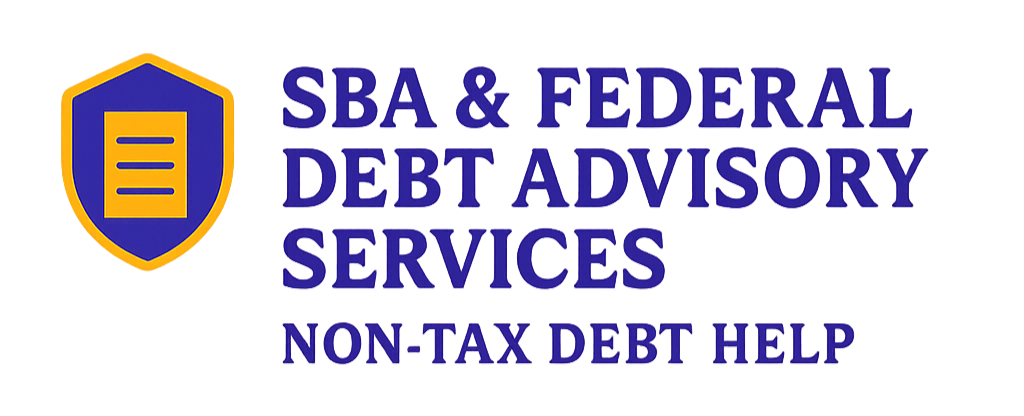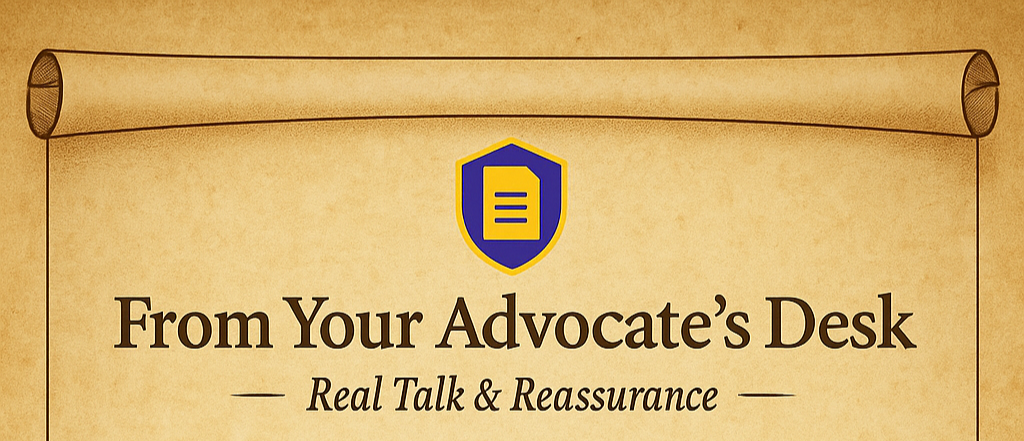
If you’ve just opened a letter from the Bureau of the Fiscal Service warning that your wages may be garnished, you're likely feeling it in your chest. Panic. Confusion. Anger. A deep sinking feeling that something bad is happening — and you don’t know how to stop it. Let’s start with this:
You’re not alone. You didn’t do anything wrong by being scared or unsure. You’re reading this because you're trying to understand what’s happening — and that shows strength.
✓ Can they really do this? Yes, the Bureau of the Fiscal Service has the legal authority under federal regulation 31 CFR 285.11.
✓ How much can they take? Up to 15% of your disposable income, but never more than 25% combined if you have other garnishments.
✓ Do I need to respond? Yes — ignoring the letter can result in automatic garnishment.
✓ Can I stop it? Yes, but the pause is often temporary unless the hearing changes or cancels the action.
✓ Can I be fired? No — federal law protects your job from garnishment-related retaliation.
✓ Do I need to hire an attorney? In most cases, you do not need an attorney. However, there are some rare circumstances that could benefit from attorney representation.
Yes. If you owe a non-tax federal debt. For example, a defaulted SBA loan, over payment of federal benefits, or certain federal fines.
The Bureau of the Fiscal Service can collect through Administrative Wage Garnishment (AWG). Unlike private creditors, the government does not need to sue you in court first.
The Bureau of the Fiscal Service can garnish up to 15% of your disposable income, that is what’s left after
legally required deductions (like taxes, Social Security, and certain retirement or health benefits).
There’s a federal cap: if you’re already subject to another garnishment, the total cannot exceed 25% of your disposable income.
Use the Bureau of the Fiscal Service’s Administrative Wage Garnishment Calculator to get a general idea based on your income.
Quick Reassurance:
If this caught you off guard — that’s normal. Many people don’t even know this kind of collection is legal until they get the letter. That doesn’t mean you’re stuck. It means it’s time to understand your rights.
No. You cannot be fired just because your wages are being garnished for a non-tax federal debt.
Under 31 U.S.C. § 3720D, your employer is prohibited from firing, refusing to hire, or disciplining you solely because of the garnishment.
You’re protected under federal wage limits. The Bureau of the Fiscal Service must ensure all garnishments combined do not exceed 25% of your disposable income.
If you do nothing, garnishment may begin automatically. That’s not a scare tactic; it’s simply what happens next in the process
Yes, if you request a timely hearing.
If you request a hearing within 15 business days of the mailing date, the Bureau of the Fiscal Service must pause the garnishment until a decision is made.
If you do not request a hearing within 15 business days of the mailing date of the letter, then the Bureau of the Fiscal Service may garnish your wages for 60 days. If the hearing official takes longer than 60 days to issue a decision, the Bureau of the Fiscal Service is required to suspend garnishment until the review is complete.
The letter you received includes a form (usually on page 3) to request a hearing.
Submitting this form gives you the opportunity to:
✓ Dispute the existence of the debt
✓ Challenge the amount
✓ Explain why garnishment would cause financial hardship.
Feeling Ashamed or Alone? You're Not.
Most people feel humiliated or frozen when they get a letter like this. That’s not failure — that’s being human. You're not irresponsible. You're overwhelmed, and you're facing something you were never prepared for. And you don’t have to do it alone.
In most cases, you do not need to hire an attorney to request a hearing or respond to a Notice of Intent to Initiate Wage Garnishment. The process is designed to allow individuals to advocate for themselves using documentation and a written statement.
That said, there are rare situations such as disputed legal ownership of the debt, or aggressive Department of Justice action, where legal representation may be helpful.
If you’re unsure, we can help you understand the process first, so you can decide whether additional help is needed.
In our next guide, we’ll walk you through: How to Request a Wage Garnishment Hearing — And Why It Matters.
We'll walk you through:
✓ How to submit your hearing request
✓ What documents to include
✓ What to expect once your request is under review
Need help reviewing your notice or preparing your request? You don’t have to face this process alone.
We’ve helped others take action, avoid costly delays, and feel more confident submitting their hearing requests.
Disclaimer: This resource is for informational purposes only and is not legal advice. SBA & Federal Debt Advisory Services is not a law firm and does not provide legal representation. We support individuals navigating federal debt processes as advocates and consultants. If your situation requires legal advice, you may wish to consult an attorney. This resource was created by SBA & Federal Debt Advisory Services. Learn more at NonTaxDebtHelp.com or schedule your free 15-minute consultation at: SBA & Federal Debt Advisory Services


 DisclaimerDisclaimer
DisclaimerDisclaimerLooking for more support and straight answers?
Check out these helpful posts:
Can the U.S. Bureau of the Fiscal Service Really Garnish My Wages?
From Your Advocate’s Desk – Real Talk & Reassurance

If you’ve just opened a letter from the Bureau of the Fiscal Service warning that your wages may be garnished, you're likely feeling it in your chest. Panic. Confusion. Anger. A deep sinking feeling that something bad is happening — and you don’t know how to stop it. Let’s start with this:
You’re not alone. You didn’t do anything wrong by being scared or unsure. You’re reading this because you're trying to understand what’s happening — and that shows strength.
✓ Can they really do this? Yes, the Bureau of the Fiscal Service has the legal authority under federal regulation 31 CFR 285.11.
✓ How much can they take? Up to 15% of your disposable income, but never more than 25% combined if you have other garnishments.
✓ Do I need to respond? Yes — ignoring the letter can result in automatic garnishment.
✓ Can I stop it? Yes, but the pause is often temporary unless the hearing changes or cancels the action.
✓ Can I be fired? No — federal law protects your job from garnishment-related retaliation.
✓ Do I need to hire an attorney? In most cases, you do not need an attorney. However, there are some rare circumstances that could benefit from attorney representation.
Yes. If you owe a non-tax federal debt. For example, a defaulted SBA loan, over payment of federal benefits, or certain federal fines.
The Bureau of the Fiscal Service can collect through Administrative Wage Garnishment (AWG). Unlike private creditors, the government does not need to sue you in court first.
The Bureau of the Fiscal Service can garnish up to 15% of your disposable income, that is what’s left after
legally required deductions (like taxes, Social Security, and certain retirement or health benefits).
There’s a federal cap: if you’re already subject to another garnishment, the total cannot exceed 25% of your disposable income.
Use the Bureau of the Fiscal Service’s Administrative Wage Garnishment Calculator to get a general idea based on your income.
Quick Reassurance:
If this caught you off guard — that’s normal. Many people don’t even know this kind of collection is legal until they get the letter. That doesn’t mean you’re stuck. It means it’s time to understand your rights.
No. You cannot be fired just because your wages are being garnished for a non-tax federal debt.
Under 31 U.S.C. § 3720D, your employer is prohibited from firing, refusing to hire, or disciplining you solely because of the garnishment.
You’re protected under federal wage limits. The Bureau of the Fiscal Service must ensure all garnishments combined do not exceed 25% of your disposable income.
If you do nothing, garnishment may begin automatically. That’s not a scare tactic; it’s simply what happens next in the process
Yes, if you request a timely hearing.
If you request a hearing within 15 business days of the mailing date, the Bureau of the Fiscal Service must pause the garnishment until a decision is made.
If you do not request a hearing within 15 business days of the mailing date of the letter, then the Bureau of the Fiscal Service may garnish your wages for 60 days. If the hearing official takes longer than 60 days to issue a decision, the Bureau of the Fiscal Service is required to suspend garnishment until the review is complete.
The letter you received includes a form (usually on page 3) to request a hearing.
Submitting this form gives you the opportunity to:
✓ Dispute the existence of the debt
✓ Challenge the amount
✓ Explain why garnishment would cause financial hardship.
Feeling Ashamed or Alone? You're Not.
Most people feel humiliated or frozen when they get a letter like this. That’s not failure — that’s being human. You're not irresponsible. You're overwhelmed, and you're facing something you were never prepared for. And you don’t have to do it alone.
In most cases, you do not need to hire an attorney to request a hearing or respond to a Notice of Intent to Initiate Wage Garnishment. The process is designed to allow individuals to advocate for themselves using documentation and a written statement.
That said, there are rare situations such as disputed legal ownership of the debt, or aggressive Department of Justice action, where legal representation may be helpful.
If you’re unsure, we can help you understand the process first, so you can decide whether additional help is needed.
In our next guide, we’ll walk you through: How to Request a Wage Garnishment Hearing — And Why It Matters.
We'll walk you through:
✓ How to submit your hearing request
✓ What documents to include
✓ What to expect once your request is under review
Need help reviewing your notice or preparing your request? You don’t have to face this process alone.
We’ve helped others take action, avoid costly delays, and feel more confident submitting their hearing requests.
Disclaimer: This resource is for informational purposes only and is not legal advice. SBA & Federal Debt Advisory Services is not a law firm and does not provide legal representation. We support individuals navigating federal debt processes as advocates and consultants. If your situation requires legal advice, you may wish to consult an attorney. This resource was created by SBA & Federal Debt Advisory Services.
